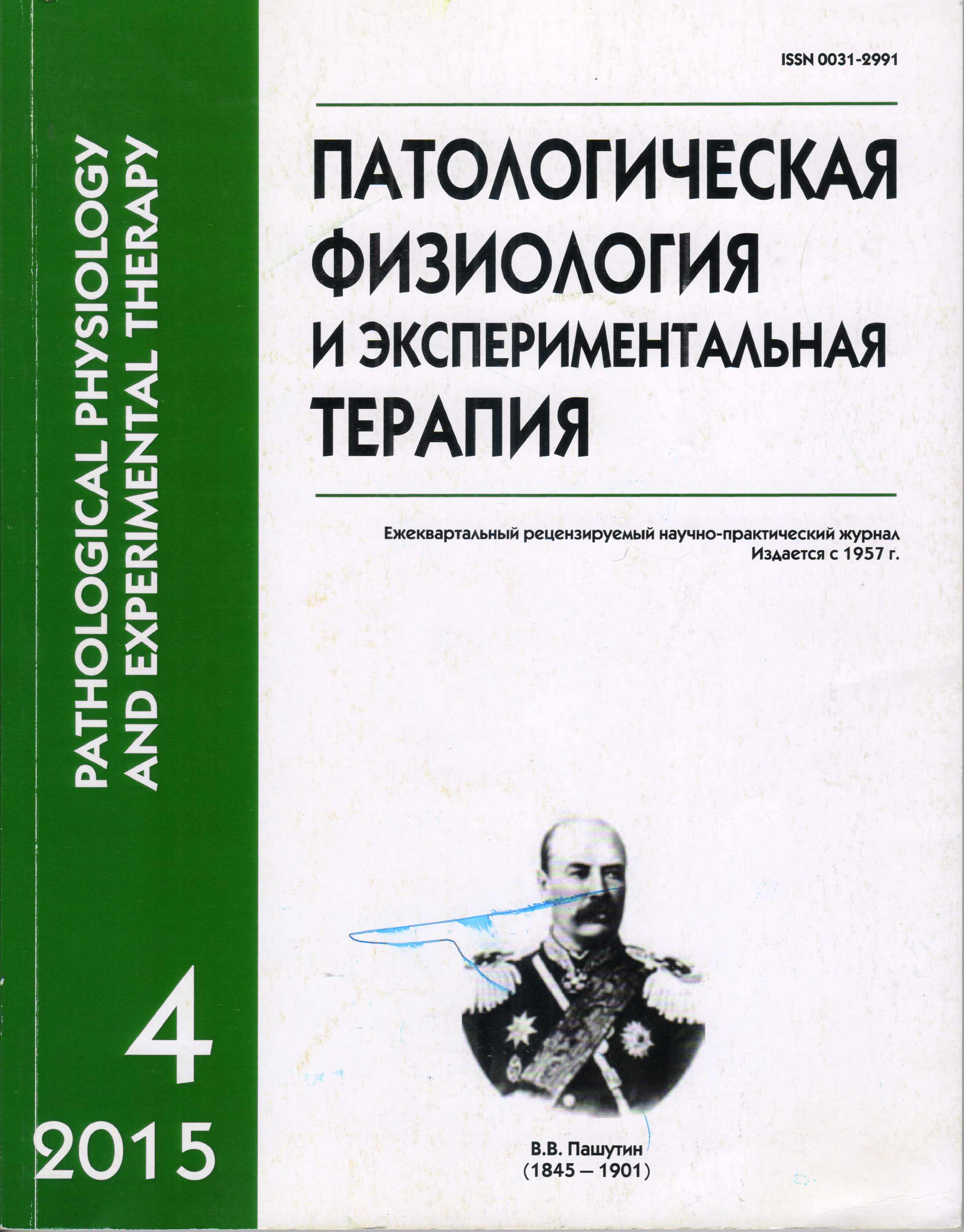Vascular reactivity and receptor expression of endogenous vasoconstrictor in rats with alcoholic cardiomyopathy and insulation stress
Keywords:
alcoholic cardiomyopathy, ethanol, stress, abstinence, vascular tone, expression of receptor mRNA
Abstract
On the model of alcohol cardiomyopathy studied the effect of chronic ethanol consumption and the insulation stress on the reactivity of isolated rat aorta and the expression of the endogenous vasoconstrictor receptors in the aorta. Pushing alcoholization outbred rats was carried out for 24—28 weeks, using as the sole source of liquid 10% ethanol solution. In assessing the results of the study took into account the age of the animals. It is found that the reactivity of isolated aortic rings dissected from the body of old (40—45 weeks) nonstressed rats in response to endothelin-1 (ET1), noradrenaline (NA), arginine vasopressin (AVP) or angiotensin II (ATII) is not different from such reactivity for young animals. However, with the increase in life expectancy increases the sensitivity of vessels to vasoconstrictor action of serotonin (5HT). Prolonged stress insulation and the consumption of high doses of ethanol the stress lead to increased ET1- and NA- induced contraction of the aortic rings and a significant decrease in contractile response of the aorta to the impact ATII and AVP. Stress and alcohol in combination with stress causing reduction mRNA ETA-R, AT1A-R. and V1A-R and increased mRNA a1-AR in rat aorta. It is found that in the vessels of stressed and alcoholized animals reduced level of expression of cytosolic glucocorticoid receptors (GR), which is a transcription factor for genes ETA-R, AT1A-R V1A-R. It is propoused that the development of vascular hyporesponsiveness of stressed and alcoholized rats to action ATII and AVP is the result of reducing the expression of their receptors on the GR- dependent mechanism. It is shown that under the influence of ethanol vessels become hyporeactivity selectively with respect to the action of 5HT. The mechanism of this process is unclear. Importantly, the changes in the contractile properties vessels recovered from the rat at 1 month after the abolition of the reception of ethanol (step abstinence ) were similar to changes found at the alcoholized animals. Thus, the importance of breaking the neuroendocrine regulation of vascular tone during long-term consumption of ethanol has a stressor components. Furthermore, in this experimental model we not received data in favor ethanol direct impact on the development of hypertension.Downloads
Download data is not yet available.
Published
21-12-2015
How to Cite
Kozhevnikova L. M., Tsorin I. B., Varkov A. I., Stolyaruk V. N., Vititnova M. B., Kolik L. G., Sukhanova I. F., Kryzhanovskii S. A. Vascular reactivity and receptor expression of endogenous vasoconstrictor in rats with alcoholic cardiomyopathy and insulation stress // Patologicheskaya Fiziologiya i Eksperimental’naya Terapiya (Pathological physiology and experimental therapy). 2015. VOL. 59. № 4. PP. 45–57.
Issue
Section
Original research






